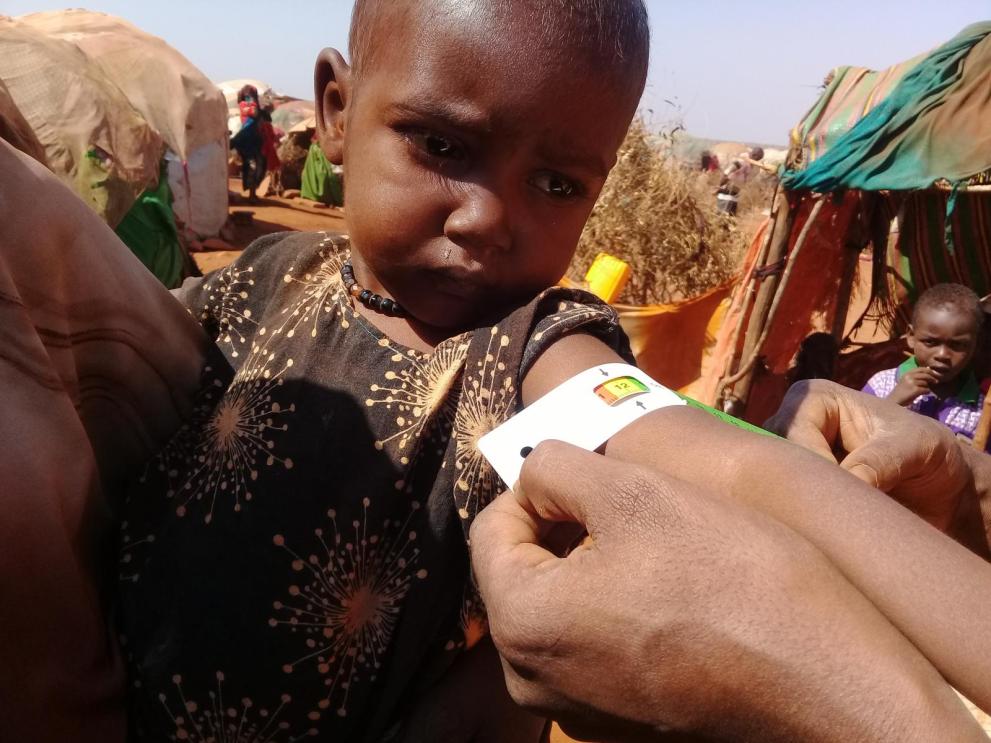
The EIDACS project, with funding from the European Union Emergency Trust Fund for Africa, aims to promote durable solutions for displaced people and their host communities in South West State of Somalia. The project is, among other things, providing capacity building for local Community Health Workers to identify common health problems in the Displacement Affected Communities (DACS) and to make referrals to neighbouring health facilities. This has enabled community mobilization of acutely malnourished children and pregnant and lactating women (PLWs) to receive the malnutrition treatments, that enables them to quickly recover to healthy condition and participate in Infant and Young Children Feeding (IYCF) training sessions for sustainable long term healthy feeding of infants.
Nafisa Mohamed Haydar’s family were displaced from Walaq village in Wajid District of Bakool Region in July 2017 and as soon as she arrived in Baidoa camp, Nafisa (in picture) was affected with measles and later diagnosed with severe acute malnutrition in November 2017. She was admitted into the Outpatient Therapeutic feeding Program (OTP) and after 2 months of treatment, she had responded so well such that she had moved out of Severe Acute Malnutrition (SAM) into the Moderate acute Malnutrition (MAM) classification. If she continues adherence to her treatment, at this rate of recovery, by March 2018, she will have recovered from malnutrition.
In Normal circumstances, the prevalence of Severe Acute Malnutrition (SAM) and Moderate Acute Malnutrition (MAM), of which the summation gives the Global Acute Malnutrition (GAM) can be classified as a normal and acceptable in situations where the GAM rate is less than 5%. However in Baidoa IDP camps, the average GAM rate for the period October to December 2017 was 35%, implying one (1) in three (3) children are malnourished, which is a high prevalence of malnutrition. If undernutrition occurs during pregnancy, or before two years of age, it will result in permanent health problems for the child with regards to physical and mental development and poor body development resulting in short height, thin body, very poor energy levels, swollen legs, abdomen, and cause for childhood deaths.
As part of the health surveillance monitoring in the two Baidoa incubator locations, the EIDACS consortium partner GREDO is undertaking active case finding of acutely malnourished children and pregnant and lactating women (PLWs) and referring them for treatment. Over a three-month period October to December 2017, 3,303 children under 59 months screened using the Mid-Upper Arm Circumference (MUAC) and results shows the situation in the Baidoa IDP camps to be in the Critical classification.
Details
- Publication date
- 14 February 2018
- Region and Country
- Somalia
- Thematic
- Greater economic and employment opportunities
- Partner
- International Organization for Migration
- CARE
- Norwegian Refugee Council
- Danish Refugee Council
- United Nations High Commissioner for Refugees
- Concern Worldwide
- United Nations Human Settlements Programme (UN-HABITAT)
- World Vision
